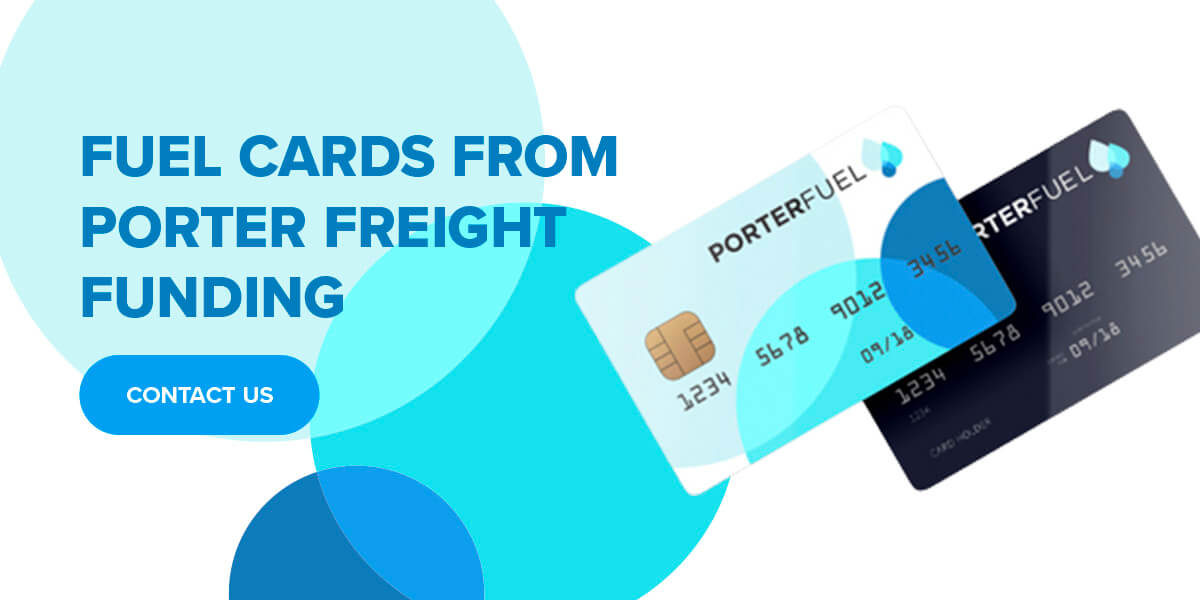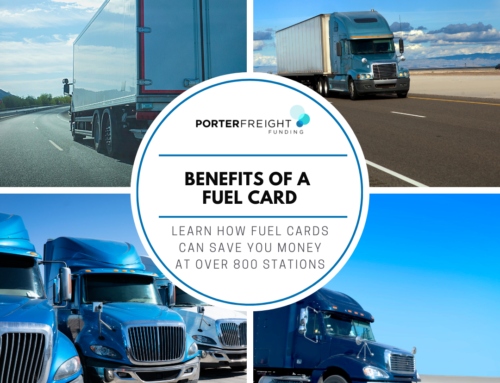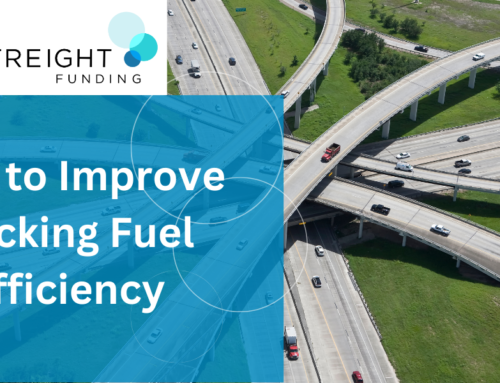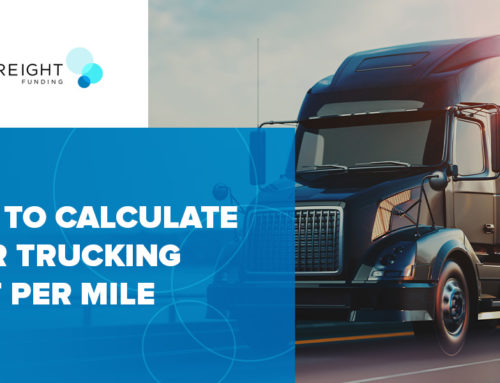Fuel accounts for a significant portion of expenses in the trucking and transportation industry, so controlling and tracking costs can help your business stay ahead. You can take a few different approaches to paying for fuel across your fleet. The two most common options are credit cards and fuel cards. Each card has specific uses and benefits, and knowing the differences between them can help you decide which is better for your needs.
What Is a Credit Card?
Credit cards are a popular alternative to cash. You can get one from a bank or other financial institution and use it to make purchases anywhere the card is accepted. The card works by allowing you to borrow money up to a certain amount to pay for your purchases. At the end of a statement period, you pay the money you borrowed back or let the amount roll over to the next payment period with interest and fees.
Unlike debit cards, credit cards aren’t linked to your bank account. All transactions appear on a statement you receive at the end of a payment period.
What Is a Fuel Card?
A fuel card is also known as a gas card or fleet card. A third-party company, sometimes a gas station, issues these cards rather than a financial institution. Transportation businesses can use these cards to manage many expenses associated with their vehicles, including:
- Diesel
- Maintenance
- Repairs
- Tolls
You use a fuel card much like other payment cards by inserting or swiping it at a pump or cash register. These cards commonly require users to enter additional information, like a vehicle or employee number and truck mileage, to improve spending control.
Are Fuel Cards Credit Cards?
A fuel card looks like a credit card and functions similarly, but it’s not quite the same. Like credit cards, fuel cards link to a particular account and bill users regularly. However, a fuel card falls into a different category — a charge card. These cards differ from credit cards in a few key ways:
- You don’t have a preset spending limit, though you or your issuer can still place limits based on risk factors.
- You pay the card’s total bill every month rather than having the option to make a minimum payment and pass the balance to the next month.
- You receive a late payment fee if you don’t pay your bill in full.
Comparing Gas Cards vs. Credit Cards for Truckers
When weighing your payment options, these two card types might seem pretty similar. Both allow you to pay on the go without cash or a bank card, and each one has a regular billing cycle with statements that break down your expenses. Here are a few areas where the two cards differ.
Spending Controls
The primary spending control that a credit card offers is a preset limit. Beyond that feature, most of the work of controlling how you or your employees use the cards is up to you.
On the other hand, gas cards have several controls to monitor spending. First, you can assign each card to a particular driver or truck, meaning you can see how each driver uses the card. You can also restrict each card to limit how much a driver can pay per day, week or month, providing only what is necessary for gas and related driving costs.
Expense Tracking
Both credit and fuel card issuers send monthly statements showing the expenses the card was used for throughout the month. The difference is that credit cards combine all expenses into one report, making it hard to separate gas from other costs.
Fleet cards allow you to keep diesel and repairs separate from other business expenses. The cards also have additional tracking features that enable you to monitor metrics like mileage for more control over costs.
Alerts
Many credit cards offer basic security and fraud alerts to prevent and detect theft. You might also set up alerts for:
- Purchases over a certain amount.
- Bill due dates.
- Balance updates.
- Payments posted.
For fuel cards, alerts offer more specific information that you can use in the trucking industry. These notifications include:
- Alerts for particular drivers.
- Notifications for every purchase.
- Mileage and gas expense alerts.
Uses
Credit cards have a much wider variety of uses than fuel cards. You or your employees can use one at any business that accepts the type of card you own. Fleet cards only pay for expenses related to trucking, from the gas you buy at the pump to repair and maintenance costs.
Acceptance
Most businesses accept credit cards, making them an excellent choice for people who want a simple spending option. Those who own gas cards can only use them for vehicle-related purchases — most often at gas stations and sometimes maintenance locations. As a result, gas cards offer less flexibility but more control over purchases.
Rewards
Both cards both offer incentives like rewards and discounts for purchases. The deals you get depend on the card, but credit cards commonly provide benefits like:
- Cash back on purchases.
- Introductory 0% interest periods.
- Travel discounts.
- Discounts or percentages of cash back on purchases from particular stores.
The most common reward offered for fleet cards is discounts on fuel. With a gas card, you might only pay the cash price, not the credit card price. You may even pay less than the cash price in some locations when using a gas card. While credit cards might provide a percent back on fuel, the discounts given on fleet cards are often much higher.
Is It Better to Have a Fuel Card or a Credit Card?
When comparing fleet cards vs. credit cards in the transportation industry, fuel cards are often much more beneficial. Fleet cards have a specific use, while credit cards are more general. Compared to gas cards, credit cards are not optimal for the particular needs of the transportation industry. Here are a few reasons why both individual drivers and large trucking companies like fuel cards:
- More control over spending: Gas cards can only be used at particular locations, and drivers must enter an identification number to use them — making it more likely that the card will only be used for transportation-related expenses.
- In-depth data: With a fuel card, you can separate diesel costs from other business expenses and track additional data like mileage and fuel efficiency for each driver.
- Tailored rewards: While credit cards offer some travel perks, you can get much better rewards with a card specifically created to handle transportation expenses.
Fuel Cards From Porter Freight Funding
Fuel cards are an excellent way to manage gas and related purchases for your trucking company. You can control expenses more effectively and gain rewards that can save you a significant amount. Our fuel cards from Porter Freight also offer unique benefits, like an online portal that allows you to find the best gas prices nationwide and manage card balances and spending on the go.
If you’d like to start saving money on gas, talk to our team at Porter Freight. Contact us over the phone at 205-397-0934 or reach out online through our contact form.
Use Our Trucking Fuel Cost Calculator
Upon hitting the submit button, our tool quickly processes your input data and provides a detailed report with four key outputs:
Weekly Diesel Costs: The total amount you’re currently spending on diesel every week.
PorterFuel Card Weekly Savings: The amount of money you could save each week by using a PorterFuel Card.
PorterFuel Card Monthly Savings: Your potential monthly fuel savings with a PorterFuel Card.
PorterFuel Card Annual Savings: An estimate of your total savings in a year should you opt for the PorterFuel Card.



